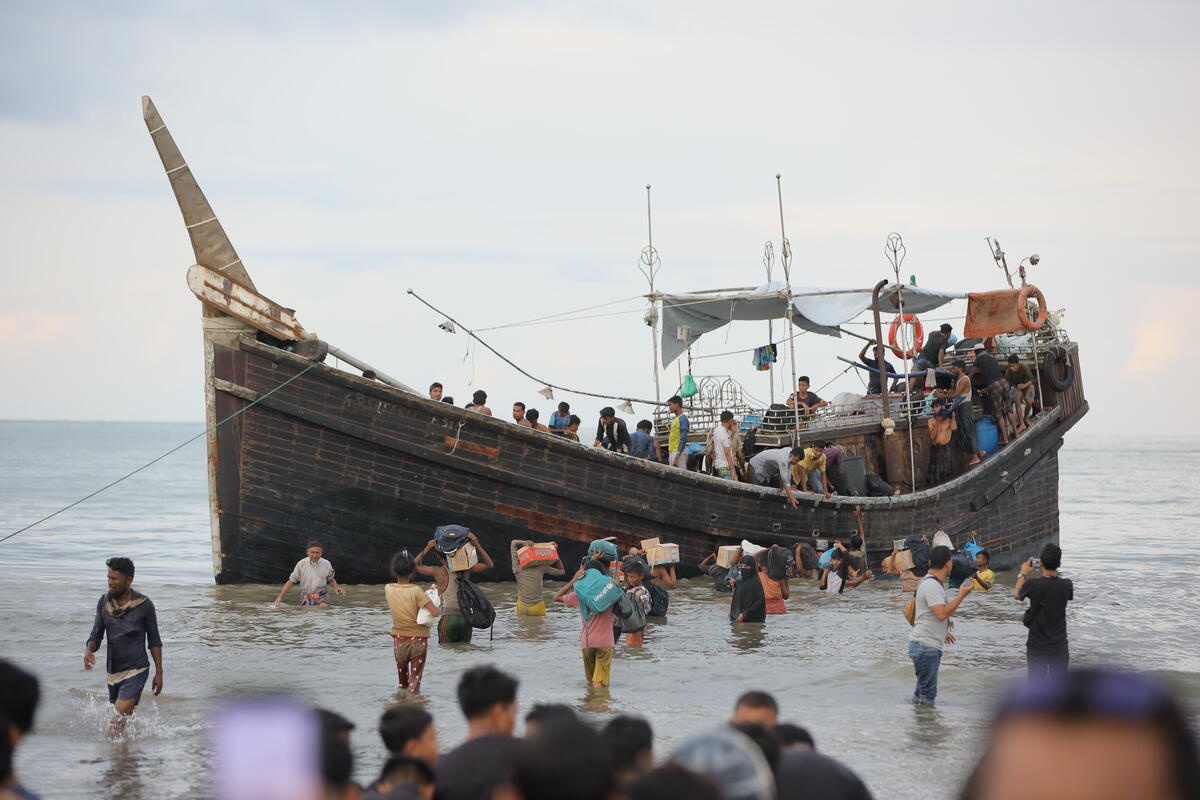Indonesia boat people: Australia shirks international obligations
Indonesia boat people: Australia shirks international obligations
UNHCR has asked the Indonesian government for immediate access to 14 boat people who were towed back to Indonesia by the Australian Navy last Saturday, after being effectively prevented from seeking asylum on Australia's Melville Island.
In a note verbale handed to the Indonesian foreign ministry today, UNHCR urged Indonesia not to deport (or "refoule") the 14 likely asylum seekers. The note says: "the Office wishes to draw attention to the fact that under international law the fundamental principle of non-refoulement is recognised as a norm of customary international law. UNHCR counts on the Government of Indonesia to observe this principle."
UNHCR is very concerned about Australia's decision last Saturday to deny the 14 boat people the opportunity to seek asylum on Melville Island and instead to send them back to a country which has not signed the 1951 UN Refugee Convention. In doing so, Australia's shirked its obligations under international law. The action is also at variance with various guidelines issued by the UNHCR Executive Committee - the agency's governing body that Australia is a member of.
Another cause of concern is Australia's refusal to give UNHCR access to the 14 boat people in order to jointly discuss possible solutions for them. These people had already entered Australian territory and should have been given access to a fair asylum procedure - a fundamental principle of international law. Instead, they were sent back to a country which has no asylum procedure in place and where there is no possibility of being granted durable asylum.
UNHCR condemns people-smuggling and supports efforts to put an end to this infamous trade, but these efforts should not come at the expense of those who are being smuggled or at variance with states' obligations under international law.








